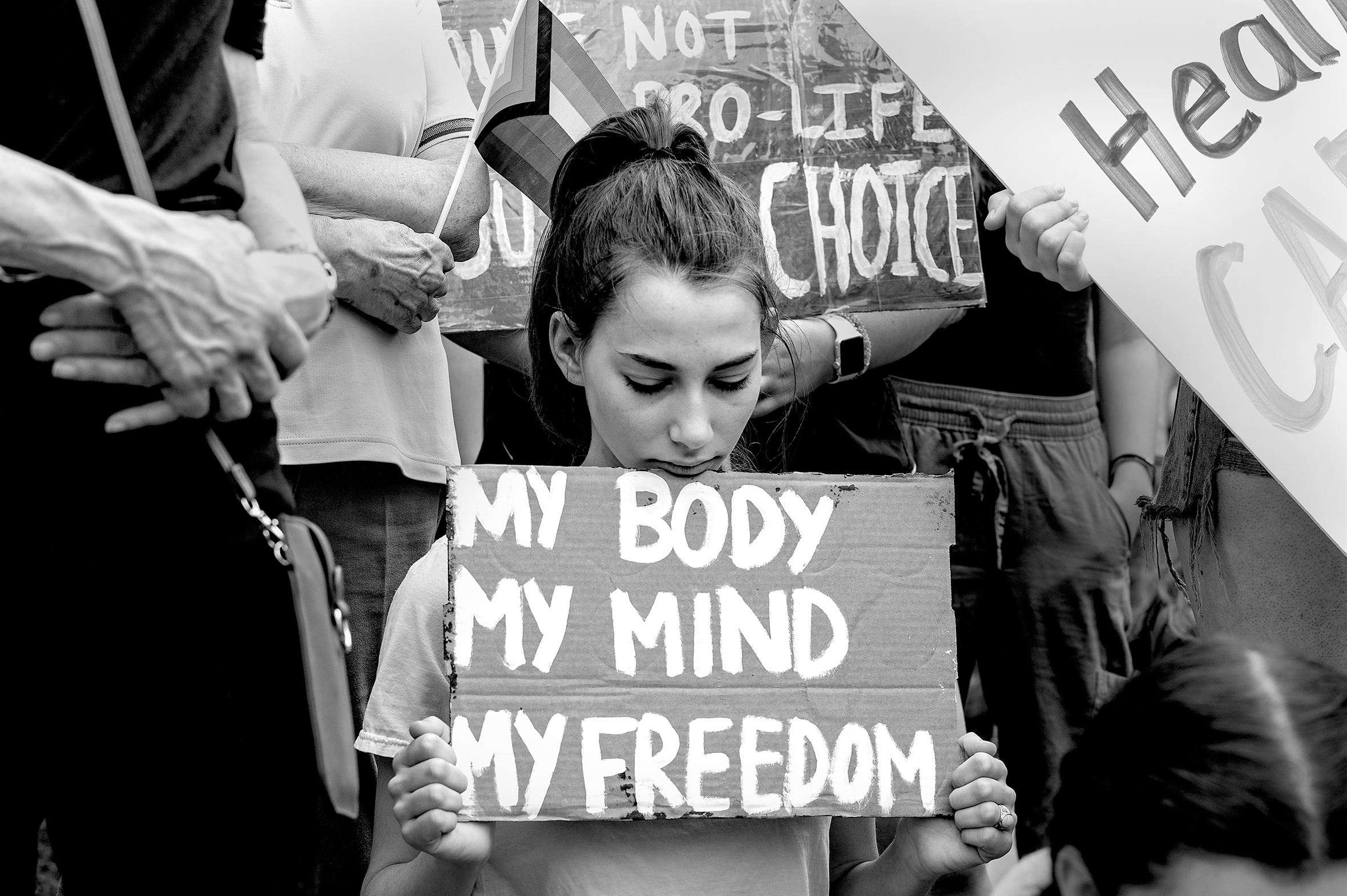The Supreme Court’s move in June to overturn the landmark 1973 Roe v. Wade decision was a seismic one, but not entirely surprising. For decades U.S. states have been restricting access to reproductive rights, and President Trump’s nomination of three conservative justices to the Court had ensured that more states would be free to pass similar laws. But hidden within the undoing of Roe are threats to our rights beyond those pertaining to decisions about our own bodies.
As a legal scholar and anthropologist, Khiara M. Bridges has researched the racial and class aspects of pregnancy and health care, and she sees these attacks on reproductive justice as part of a broader attack on vulnerable people in general. She has been tapped by news outlets to speak about the legal ramifications of Texas’s Senate Bill 8 (S.B. 8), which bans abortion after six weeks of pregnancy and allows private citizens to sue any individual, in any state, who assists a Texas woman in obtaining an abortion, including by paying for the procedure. She was lead author of an amicus brief arguing that Mississippi’s Gestational Age Act, which prohibits nearly all abortions after fifteen weeks of pregnancy, was unconstitutional under existing Supreme Court precedents and that Roe v. Wade should be affirmed. In July, during testimony before the Senate Judiciary Committee, she engaged in a tense exchange with Republican senator Josh Hawley about his refusal to acknowledge that trans men and nonbinary people are affected by abortion restrictions and regulations — a moment that quickly spread across the Internet.





